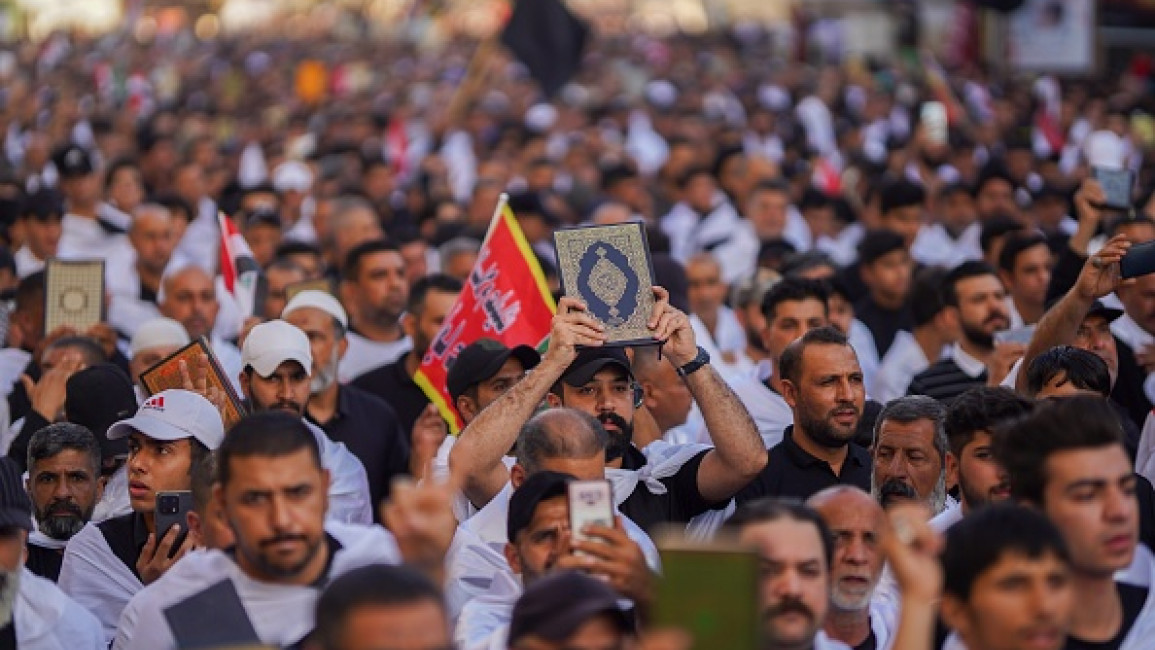Iraq's Sadr warns of attacks in Mecca, other Islamic sites after Quran burnings
Iraqi Shia cleric and political leader Muqtada al-Sadr warned on Tuesday of an alleged plan to target Islam’s holiest site and other religious Muslim sites after more Quran burning incidents in Europe.
"Such crimes [the burning of the Quran] may be considered evidence of a more insidious scheme that may affect other sanctities," Sadr said in a statement posted to Twitter.
He mentioned the Kaaba - the large cube-shaped structure at the centre of Mecca’s Grand Mosque – and Medina, both in Saudi Arabia and considered the two holiest sites in Islam.
Sadr claimed the shrines of imams in Iraq were also possibly in danger, adding that Iraq had become a "qibla" – a direction of prayer for Muslims – after the Quran burnings were often happening outside Baghdad’s diplomatic missions.
He did not give any evidence for his claims.
— مقتدى السيد محمد الصدر (@Mu_AlSadr) August 1, 2023
Sadr also slammed the responses of governments to the burning of Quran copies, the latest of which happened on Monday outside the Saudi Embassy in Denmark's capital.
His supporters stormed and set fire to the Swedish Embassy in Baghdad last month after multiple incidents where the Quran was desecrated in Stockholm by an Iraqi refugee.
Baghdad also expelled the Swedish ambassador.
As recent Quran burnings have sparked angry demonstrations and diplomatic backlash in Muslim countries, officials in the Scandinavian countries have begun to consider whether there should be curbs on public defacement of holy books or other religious symbols.
Other Islamic figures in the region – most notably Hassan Nasrallah who leads the Shia Hezbollah militant group – have also called on Muslims around the world to respond to attacks against the Quran if their governments fail to do so, without saying how.



